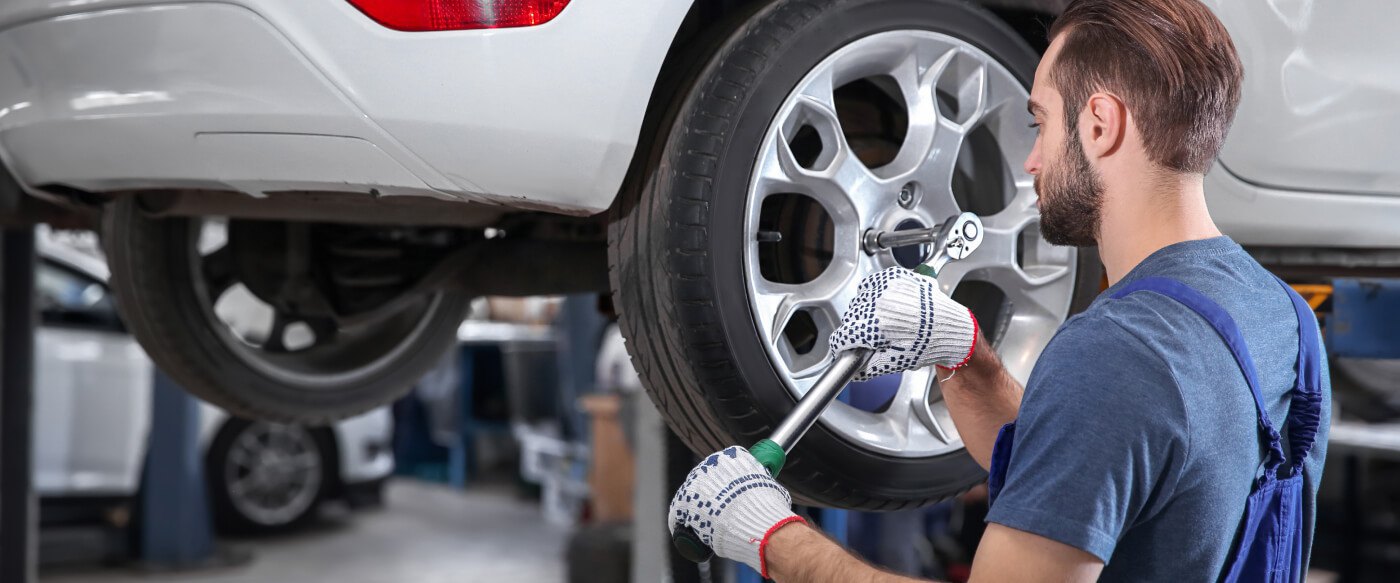Morris Tires: Where GMC Tire Service Meets Quality
Wiki Article
Tire Solution: The Impact of Climate Condition
When it pertains to making certain optimal efficiency and safety when driving, recognizing the influence of weather problems on tire solution is crucial. From scorching warmth to icy roadways, each weather condition component can considerably influence tire capability and general driving experience. By delving into the effects of varying weather condition conditions on tires, drivers can obtain valuable insights that might improve their lorry's performance and long life. In this conversation, we will certainly check out the complex partnership in between climate condition and tire solution, dropping light on the value of weather-specific tire upkeep methods and considerations.Warmth and Tire Performance
When exposed to high temperature levels, tires experience changes in efficiency that can considerably influence car safety and security and handling. The warmth generated from prolonged driving or warm climate problems creates the tire rubber to soften, leading to reduced tread life and raised wear.
Winter Results
Cold weather conditions can have a considerable influence on tire performance and safety. As temperature levels decline, tire rubber can harden, bring about reduced traction on icy or snow-covered roads. In cold climate, tires may additionally lose air stress much more rapidly, which can influence managing and fuel efficiency. Furthermore, cool temperature levels can trigger tire sidewalls to stiffen, enhancing the danger of damages from craters or other roadway threats.To reduce the impacts of cool weather condition on tires, it is critical to consistently examine tire pressure and inflate them to the producer's suggested levels. Making use of winter months or all-season tires designed for winter conditions can also boost grip and grasp on icy or snowy roadways. Appropriate tire upkeep, including regular examinations for wear and damages, becomes a lot more critical during cooler months to make certain optimum efficiency and safety.
Rainy Issues Effect
Throughout rainy conditions, tire performance and security can be considerably influenced by the damp roadway surface areas and decreased presence. The step pattern of tires plays an important role in keeping grip on damp roadways. Tires with damaged treads are extra susceptible to hydroplaning, where a layer of water accumulates between the road and the tire surface area, resulting in loss of grip. To fight this, chauffeurs ought to routinely examine their tires for adequate tread depth and think about spending in tires particularly developed for damp conditions.Moreover, wet weather can likewise decrease presence, making it challenging for drivers to see the road in advance plainly (GMC Tire Service). In such problems, it is important to adjust driving speeds accordingly and preserve a risk-free adhering to distance to permit unexpected quits. Effectively filled with air tires can also assist in preserving control on wet roadways by providing much better handling and grasp
Snow and Tire Safety And Security
Snow-covered roads position distinct difficulties for vehicle drivers, emphasizing the value of proper tire option and upkeep. When driving in snowy you can try this out problems, having the right tires can make a substantial distinction in safety and security and performance. Winter tires are created with unique rubber substances and tread patterns to give better traction on snow and ice compared to all-season tires. The much deeper footsteps and sipes of winter tires help hold the roadway better, minimizing the risk of moving and slipping.
It is vital to adhere to supplier guidelines when mounting and utilizing tire chains to prevent damage to the tires and lorry. By picking the ideal tires, preserving proper inflation, and considering added grip aids like tire chains, chauffeurs can improve their safety and security when browsing snow-covered roadways.
Weather-Related Tire Maintenance
When encountered with numerous weather conditions, correct tire maintenance comes to be a vital facet of automobile safety and performance. Weather-related tire upkeep encompasses a variety of practices targeted at ensuring optimal tire feature and longevity in various weather circumstances. One key facet of weather-related tire maintenance is tire pressure law. Changing temperature levels can cause tire stress to differ, impacting grip and gas effectiveness. Frequently adjusting and inspecting tire stress according to supplier suggestions is essential for safe driving in altering weather. Furthermore, tire walk depth plays a substantial role in handling different weather condition elements. Tires with sufficient walk deepness give far better grip on wet or icy roadways, decreasing the threat of hydroplaning or skidding. When walk wear gets to a specific deepness is crucial for keeping grip and security in negative climate, evaluating tire step routinely and changing tires. By prioritizing weather-related tire upkeep, drivers can improve safety, improve lorry efficiency, and extend the lifespan of their tires.
Conclusion
Finally, weather have a significant influence on tire performance and safety. From warmth impacting tire stress and put on to winter decreasing grip, it is necessary to think about the climate when preserving and making use of tires. Rainy problems can reduce hold and lead to hydroplaning, while snow can enhance the threat of mishaps if tires are not properly furnished. Weather-related tire maintenance is important in making sure optimum performance and security when traveling.In this conversation, we will check out the complex partnership between weather condition problems and tire service, losing light on the significance of weather-specific tire upkeep practices and factors to consider.

Report this wiki page